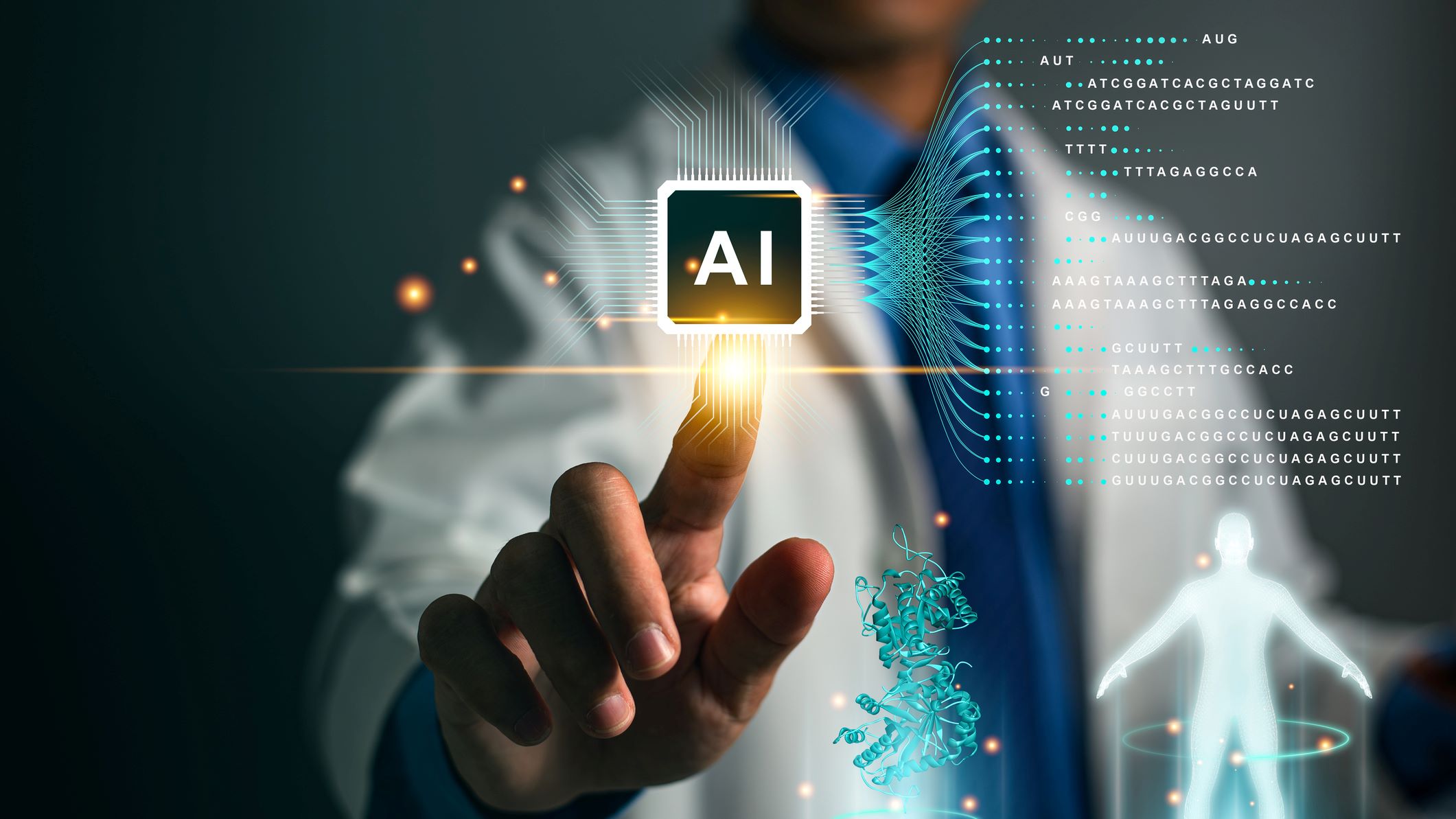AI in healthcare: Transforming the future of medicine

Artificial intelligence (AI) is revolutionizing the healthcare industry, offering unprecedented opportunities to enhance patient care, streamline operations, and accelerate medical research. From predictive analytics to personalized treatment plans, AI's integration into healthcare systems is transforming the way we approach medical challenges.
The role of AI in healthcare
AI in healthcare refers to the use of machine learning algorithms and other advanced computational techniques to analyse complex medical data. By processing vast amounts of information quickly and accurately, AI systems can identify patterns, make predictions, and even assist in decision-making. The applications of AI in healthcare are vast,ranging from diagnostics to patient management, and are poised to bring significant improvements to the industry.
Diagnostic accuracy and efficiency
One of the most promising applications of AI in healthcare is in diagnostics. AI algorithms can analyse medical images, such as X-rays, MRIs, and CT scans, with a level of precision that rivals or even exceeds that of human experts. For example, AI systems have been developed to detect early signs of diseases like cancer, potentially saving lives by enabling earlier intervention.
AI is also being used to analyse genetic data, helping to identify patients at risk for certain hereditary conditions. By sifting through massive datasets, AI can uncover genetic markers associated with diseases, allowing for more accurate and personalized diagnoses.
Personalized medicine
AI is at the forefront of personalized medicine, where treatment plans are tailored to the individual characteristics of each patient. By analysing data from various sources, including genetic information, medical history, and lifestyle factors, AI can help design customized treatment plans that are more effective and have fewer side effects.
For instance, AI can predict how a patient might respond to a particular drug, enabling doctors to choose the most effective medication with the least risk. This level of personalization is transforming the way healthcare is delivered, moving away from a one size fits all approach to a more individualized strategy.
Predictive analytics in patient care
Predictive analytics is another area where AI is making a significant impact. By analysing patient data, including electronic health records (EHRs), AI can identify trends and make predictions about a patient’s future health. This capability is particularly useful in managing chronic diseases, where early intervention can prevent complications and improve outcomes.
For example, AI can predict which patients are at risk of developing conditions like diabetes or heart disease, allowing for proactive measures to be taken. Hospitals are also using AI to predict patient admissions, optimizing resource allocation and reducing wait times.
AI in medical research
AI is accelerating medical research by analysing vast datasets more quickly than human researchers ever could. In drug discovery, AI algorithms can sift through millions of compounds to identify potential new drugs, dramatically shortening the time it takes to bring new treatments to market.
Additionally, AI is helping to identify new uses for existing drugs, a process known as drug repurposing. By analysing clinical trial data and patient outcomes, AI can uncover unexpected benefits of drugs, leading to new treatment options for patients.
AI powered virtual assistants
AI powered virtual assistants are increasingly being used in healthcare settings to enhance patient care and streamline administrative tasks. These virtual assistants can answer patient questions, schedule appointments, and provide medication reminders, all while freeing up healthcare professionals to focus on more complex tasks.
In addition, AI chat bots are being used to triage patients, providing initial consultations and guiding them to the appropriate level of care. This not only improves patient access to care but also reduces the burden on healthcare systems, particularly in areas with limited resources.
Challenges and ethical considerations
While the potential of AI in healthcare is immense, there are also challenges and ethical considerations that need to be addressed.
Data Privacy and Security
The use of AI in healthcare involves the processing of vast amounts of sensitive patient data. Ensuring that this data is securely stored and protected from un authorized access is critical. Compliance with data protection regulations, such as the General Data Protection Regulation (GDPR) in Europe and the Health Insurance Portability and Accountability Act (HIPAA) in the United States, is essential for maintaining patient trust.
Bias in AI algorithms
AI algorithms are only as good as the data they are trained on. If the data used to train an AI system is biased, the outcomes may also be biased, leading to disparities in care. For example, if an AI system is trained primarily on data from a specific population, it may not perform as well for individuals outside that group. Addressing bias in AI is a critical challenge that requires careful consideration in the development and deployment of AI systems.
Ethical use of AI in decision making
As AI systems take on a more prominent role in healthcare, there are ethical questions about the extent to which AI should be involved in decision making. While AI can provide valuable insights and recommendations, the final decision should always rest with a qualified healthcare professional. Ensuring that AI is used to support, rather than replace, human judgment is essential for ethical healthcare delivery.
The future of AI in healthcare
The future of AI in healthcare is bright, with continued advancements expected to further enhance patient care, improve outcomes, and reduce costs. As AI technologies become more sophisticated, they will play an increasingly central role in all aspects of healthcare, fromdiagnostics and treatment to patient management and medical research.
At ProdActive, we are at the forefront of this AI revolution, helping healthcare organizations harness the power of AI to transform their operations and deliver better care. Our expertise in AI development, healthcare software, and digital health solutions enables us to create customized AI tools that meet the unique needs of each client.
If you’re interested in learning more about how AI can enhance your healthcare operations, contact us today.
Let’s explore how we can work together to harness the full potential of AI in healthcare.